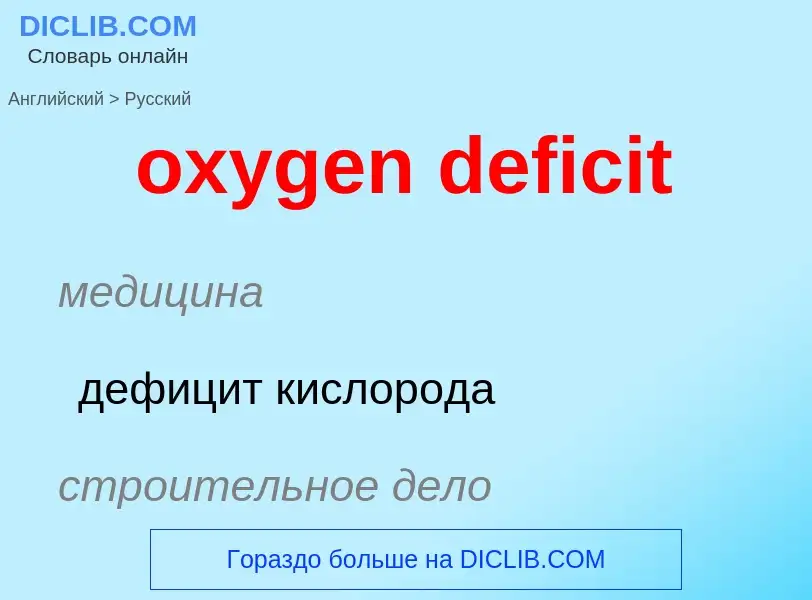Translation and analysis of words by artificial intelligence
On this page you can get a detailed analysis of a word or phrase, produced by the best artificial intelligence technology to date:
- how the word is used
- frequency of use
- it is used more often in oral or written speech
- word translation options
- usage examples (several phrases with translation)
- etymology
oxygen deficit - translation to russian
медицина
дефицит кислорода
строительное дело
дефицит кислорода, отрицательный кислородный баланс
общая лексика
кислородная задолженность
кислородный долг
Definition
Wikipedia
.jpg?width=120)
Excess post-exercise oxygen consumption (EPOC, informally called afterburn) is a measurably increased rate of oxygen intake following strenuous activity. In historical contexts the term "oxygen debt" was popularized to explain or perhaps attempt to quantify anaerobic energy expenditure, particularly as regards lactic acid/lactate metabolism; in fact, the term "oxygen debt" is still widely used to this day. However, direct and indirect calorimeter experiments have definitively disproven any association of lactate metabolism as causal to an elevated oxygen uptake.
In recovery, oxygen (EPOC) is used in the processes that restore the body to a resting state and adapt it to the exercise just performed. These include: hormone balancing, replenishment of fuel stores, cellular repair, innervation, and anabolism. Post-exercise oxygen consumption replenishes the phosphagen system. New ATP is synthesized and some of this ATP donates phosphate groups to creatine until ATP and creatine levels are back to resting state levels again. Another use of EPOC is to fuel the body’s increased metabolism from the increase in body temperature which occurs during exercise.
EPOC is accompanied by an elevated consumption of fuel. In response to exercise, fat stores are broken down and free fatty acids (FFA) are released into the blood stream. In recovery, the direct oxidation of free fatty acids as fuel and the energy consuming re-conversion of FFAs back into fat stores both take place.

.jpg?width=200)
